Celebrities rally behind quota reform amid violent clashes
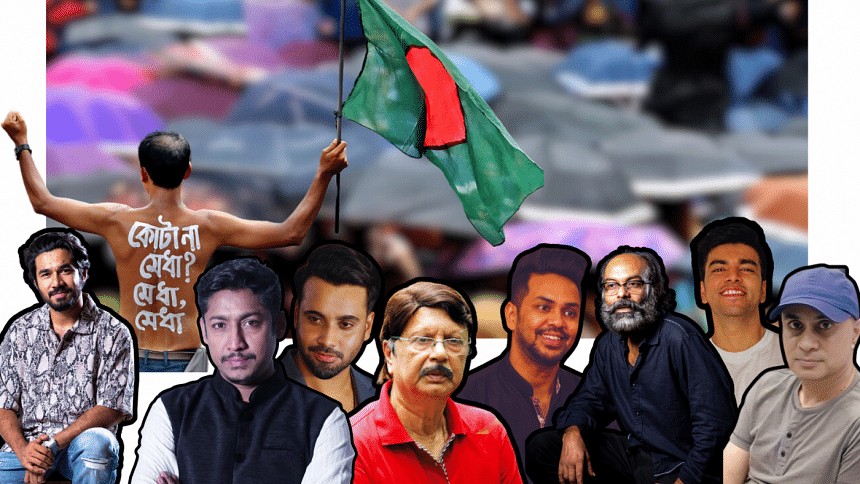
In the wake of recent violent clashes between student protesters and Bangladesh Chhatra League (BCL) activists at Dhaka University, a wave of support from celebrities has emerged for the quota reform movement. The incident, which occurred on July 15, resulted in approximately 300 injuries, including female students and BCL members. As of July 16 (7:30pm), six people have been reported to be killed nationwide due to the ongoing clashes.
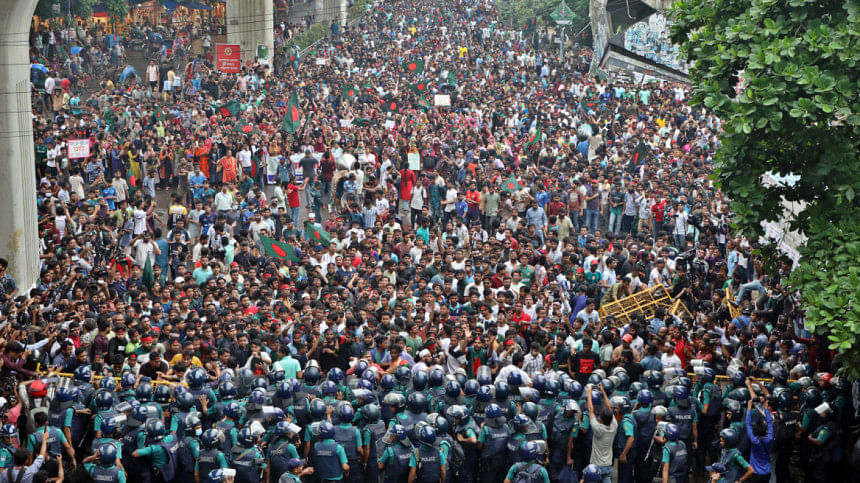
The unrest spread to other public universities across Bangladesh, including Jagannath University, Jahangirnagar University, Rajshahi University, Chittagong University, and Eden Mohila College.

Prominent figures from the entertainment industry took to social media to express their views on the contentious issue. Their statements reflect a growing concern over the government's response to the students' demands and the use of force against non-violent protesters.
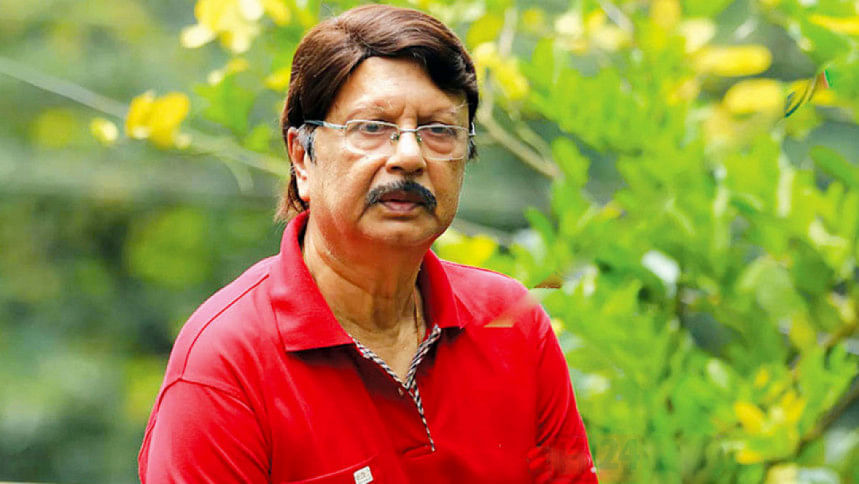
Veteran actor and freedom fighter Sohel Rana advocated for the quota's removal. He shared his opinion on his Facebook account, stating, "Freedom fighters fought at the call of Bangabandhu for independence... We achieved that immediately after the War. We freedom fighters have nothing more to ask for." While acknowledging the system's past merit, Rana questioned its current relevance: "53 years have passed since the country's independence. At this point, neither freedom fighters nor their children are of age to seek government jobs. So, I don't see the need to keep the quota system active even now," He suggested the system might now serve "hidden self-interests," as it no longer logically benefits freedom fighters or their children.

Actor Rawnak Hasan, general secretary of Actors Equity Bangladesh, advocated for a nuanced approach to quota reform. He stated, "Quota reform is certainly possible. The quota for freedom fighters and their children will naturally become ineffective in a few years. A minimum honorary quota from the state for our valiant freedom fighters is necessary." However, Hasan also hinted at possible ulterior motives, noting, "The way this movement of thousands of students has been directed clearly indicates who the masterminds are."

Director Ashfaque Nipun showed solidarity with the students by sharing a powerful image of two female students being assaulted during the protests, simply stating, "Stand by the students."
Filmmaker Mishuk Moni expressed his sorrow over the violent scenes unfolding in the city. He criticised the government's tendency to label dissenters as traitors, saying, "In this country, speaking against the government labels you a traitor. Criticising any government official's corruption also makes you a traitor. Participating in a movement for rightful demands makes you a traitor." Moni questioned the use of force, asking, "Why did BCL activists, wearing helmets and armed with sticks, injure students in the quota reform movement? The government could have sent representatives to negotiate with the students."
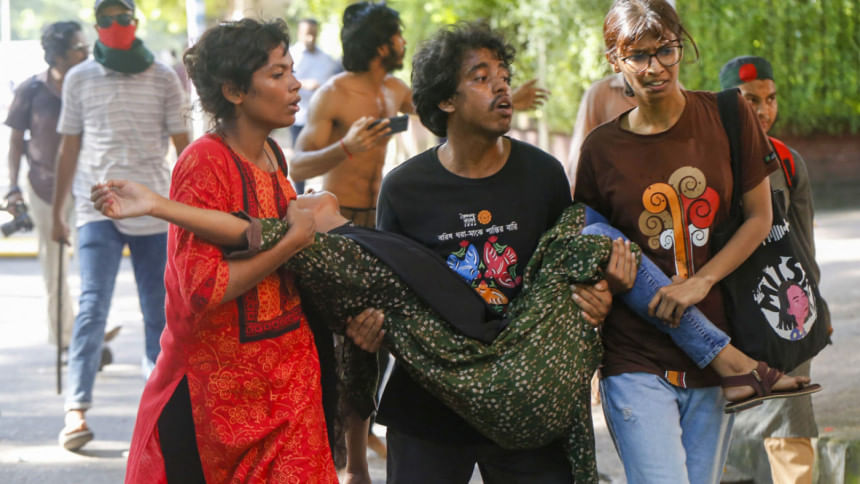
Ayman Sadiq, content creator and founder of 10 Minute School, strongly condemned the violence against protesters, expressing his dismay: "Dhaka University is covered in blood. Why is it that blood has been spilled on our campus? I strongly protest against such acts."
Musician Ziaur Rahman of the Shironamhin band argued that the quota system may have outlived its original purpose. He explained, "The quota system now only serves as a path for severe misuse. As a result, talented and qualified youth are losing their opportunities, forcing them to navigate their daily lives with frustration." He called for change, stating, "Let the youth be freed from the quota system. Let merit and qualifications be recognised."
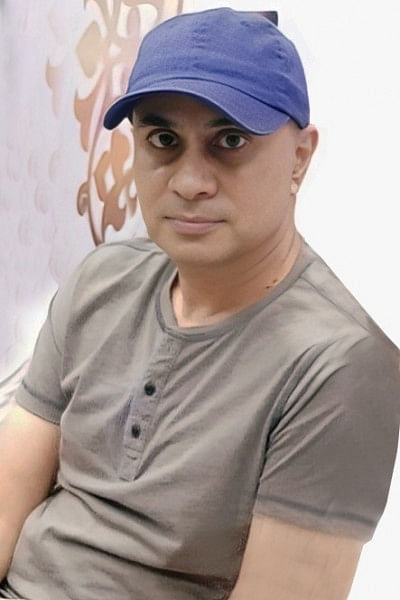
Author and publisher Mohammad Nazimuddin offered a scathing critique of the situation, dismissing claims that the protesters were misled by opposition parties. He stated, "They are not naive or misled by BNP-Jamaat as they say. The real culprits are the vote-rigging thieves and sycophants!" Nazimuddin warned of the consequences of suppressing dissent, saying, "Now, the exploited people are their nemesis."
Director Khijir Hayat questioned the judiciary's role, asking, "Can't the Appellate Division of the Honourable Court expedite their decision considering the current situation of the country, instead of delaying it for a month?"
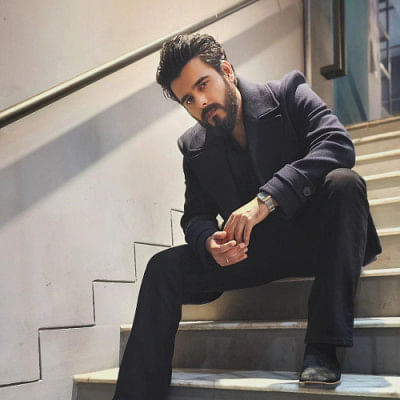
Dhallywood actor Siam Ahmed expressed his dismay at the transformation of his alma mater into a battleground, questioning, "Why has my campus become a war front? Why are students being attacked?"
Noted actor Nasir Uddin Khan shared images of the brutal attacks on protesters, showcasing the extent of injuries inflicted during clashes with BCL leaders. His question cuts to the heart of the issue: "If the country is moving towards progress, then why is it that blood is shedding all over the place?"

Cartoonist Morshed Mishu took a creative approach to express solidarity with the protesters. He illustrated a student as a Hulk-like figure draped in the colours of the Bangladeshi flag, bravely confronting agitators and trampling the quota system. Mishu's caption reads, "No matter how lightly you take it, throw as many taunts as you like. We will take bullets with our chests out, we will break the system of 'quota'."
Actor Shohel Mondol criticised the government's tactics, describing them as "catching fish in muddy waters" and urged the public to cultivate social awareness to avoid being deceived by political machinations.
Niloy Alamgir made a heartfelt appeal to the prime minister, saying, "Honourable PM, today's students are tomorrow's future leaders. They can't all be wrong in their demands. As a freedom fighter's son, I urge you to reform the quota system."

Popular YouTuber and actor Salman Mohammad Muqtadir took a proactive stance, offering accommodation and assistance to students affected by the violence. He stated, "If there are any students who have been attacked or cannot enter their halls, I will try to manage accommodation for you. If you need a place to stay or require medical assistance, I am here for you."
Khairul Basar shared an emotional post with the photo of an injured female student, expressing his anguish: "She is my sister. My heart aches to see this! You are staining this divine campus, beloved Dhaka University, with blood. Do you ever reflect on your actions?"
Actress Pori Moni added her voice to the chorus of dissent by sharing a disturbing image of a female Dhaka University student being brutally beaten during the quota reform clash. The caption reads, "If you remain silent about violence against women, you are a hypocrite."
As the quota reform movement continues to gain traction, these celebrity voices add weight to the students' cause, highlighting the need for peaceful dialogue and reform. Their diverse perspectives reflect the complexity of the issue and the widespread concern over the use of violence against protesters.

 For all latest news, follow The Daily Star's Google News channel.
For all latest news, follow The Daily Star's Google News channel. 



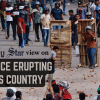





Comments